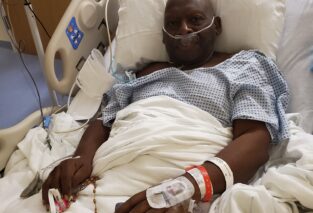(Revised and reproduced from Cameroon Tribune, Tuesday, April 21, 1987).
The University Centre for Health Sciences, the school of medicine of the University of Yaounde in Cameroon, commonly known by its French acronym CUSS (Centre Universitaire des Sciences de la Santé), as well as other medical schools in Cameroon, are still lagging lamentably behind the times in one main respect at least. At a time like ours when the whole medical world is clamouring for and applauding the salutary influence of literature on medical studies, CUSS and other medical schools in Cameroon still ostensibly excludes literature from their curriculum. How unfortunate!
I know that some people are going to rush for my throat for daring to advocate the teaching of literature to medical students but the idea is not as outrageous as it may appear at first sight. As a matter of fact, several medical institutions, especially in North America, have seen the wisdom of infusing a literary component in their teaching program. There is an increasing awareness of the intimate link between literature and medicine. Back in 17th century England, for example, Dr. Thomas Sydenham, viewed by many as the father of modern clinical medicine, strongly recommended that future doctors steep themselves in Lucretius and Montaigne instead of concentrating prematurely on anatomy and physiology. Two centuries later, the reputed French scientist Louis Pasteur repeated the same advice to budding physicians.
Indeed, medicine and literature enhance each other in many more ways than many people realise. According to Dr. Enid Rhodes Peschel, a leading literary critic and editor of a truly seminal work, a collection of marvellous essays entitled Medicine and Literature (New York: Neale Watson Academic Publications, Inc, 1980), both medicine and literature zero in on the same target: the human person, and share through the medium of language the same imperious need to communicate and to be understood. Both disciplines, says Dr. Peschel, “probe although from radically different perspectives, the same subject: The truths that are revealed and concealed in man” (p. xiii).
The usefulness of literature to medical students is driven home even more forcefully by Dr. Edmund Pellegrino, the one-time President of the Catholic University of America and at one time president of the Yale-New Haven medical centre and author of another indispensable study on the same subject entitled Humanism and the Physician (Tennessee: University of Tennessee press, 1979). In the “Introduction” to Dr. Peschel’s book mentioned above, Dr. Pellegrino writes: “In a dozen medical schools, courses in literature are serving several goals in unique ways: teaching empathy with the ill person, giving insights into the peculiarities of the medical life and the doctor’s place in society and culture, underscoring the dilemma of medical morals, and improving the use of narrative forms in history taking. These medical uses of literature offer some hope of buffering the encroachments of technology to which today’s scientifically-trained clinician seems so especially susceptible” (P. xvi).
To the already practising physician, who has mastered his craft and is perhaps already a little bored with it, Dr. Pellegrino says that literature can take him “…from the grinding reality of the clinic into the realms of the imagination, lyricism and drama; it provides those moments of delectation without which the soul shrivels. Literature refreshes the physician’s view of the men and women he sees as “patients” and restores them to their real roles in the human drama. Literature gives meaning to what the physician sees and it makes him see it feelingly. Whatever enriches the doctor’s sensibilities must perforce make him a better physician” (P. xviii).
Those are wise words indeed! May they alight gently upon, and make their home in the receptive ears of the administrators of our schools of medicine. We are eagerly looking forward to the day, in the not-too-distant future, perhaps, when literature finally becomes part and parcel of the curriculum of all medical schools in Cameroon.



